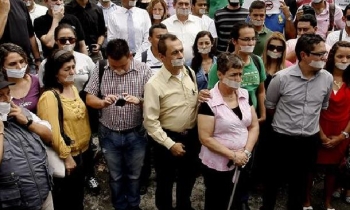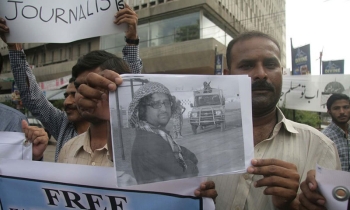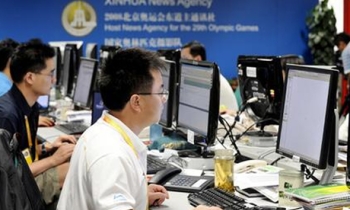Charles Atangana, a Cameroonian journalist who has been living in the UK since 2004, is facing deportation after losing his case for asylum. He believes he will be killed if he returns to Cameroon. UK's National Union of Journalists is trying to stop Glasgow-based Atangana from being deported to Cameroon where he is likely to face detention, torture or worse.
The union has temporarily stopped the forced removal of Atangana in a last minute reprieve. However, he may still be deported soon, NUJ said on its website. The UK Border Agency and Government solicitors have agreed that Atangana will not be deported as planned at 8.00 pm August 2. The removal directions have now been deferred.
NUJ lodged papers in the High Court in London on Friday July 30 to renew the leave to apply for judicial review proceedings. UK authorities have said that they want to expedite that hearing, as soon as a court would consider it.
Charles Atangana is a well-respected journalist, specialising in economics and current affairs. He claimed asylum in the UK in 2004 and has lived in Scotland while his case was being processed. While in Glasgow, Atangana has played a significant role in the local community - as a volunteer with the Citizens Advice Bureau in Parkhead, as a member of the NUJ and an activist with the Maryhill Integration Network.
After waiting for almost 18 months for a decision, he received a refusal letter and was forcibly removed from Glasgow and moved to Colnwood detention centre near London. Atangana fled Cameroon after he was set upon by President Biya’s security forces, arrested, stripped naked, beaten up and detained for forty days.
Following a visit to the country in May this year, the Federation of African Journalists described Cameroon as "one of the worst jailers of journalists in Africa". Amnesty International’s 2010 annual report on Cameroon states: "Government opponents, journalists and human rights defenders were arrested, detained and tried for offences relating to criticism of the government or its officials.” The Amnesty International report also states “The government continued to muzzle critics of its policies, including journalists and human rights defenders."










